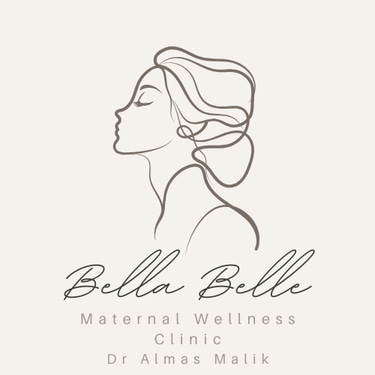Where Science Meets Holistic Women’s Health
10 Signs of Low Progesterone Postpartum & How to Support Balance Naturally
Check These 10 Signs of Low Progesterone After Birth & Natural Ways to Support Hormone Balance Postpartum for Better Mood, Sleep and Fertility
WELLNESS
Dr Almas Malik
6/25/20252 min read


Low Progesterone After Birth; 10 Signs and Natural Support Tips for New Mums
What Happens To Progesterone After Birth?
Through pregnancy, the placenta produces progesterone to maintain your pregnancy.
Pregnancy levels of progesterone can increase 100 fold, compared to before pregnancy
After delivery of the placenta, progesterone drops very sharply to low levels
Why Progesterone Matters Postpartum
Postpartum hormone wellness relies on regaining hormone balance and supporting regular ovulation to restore progesterone
Progesterone hormone is your monthly prize after ovulation. If there is no ovulation, there is no progesterone.
Why is Progesterone the Prize?
Progesterone acts on the brain receptors called GABA; this has an anti-anxiety effect, and makes you feel calm and relaxed to promote that sleepy feeling
Progesterone has additional effects in the body:
Maintains bone density
Increases thyroid hormone
Supports brain functions of memory, learning and regulates mood
Maintains the uterus lining to support a pregnancy
If you are fully breastfeeding, your ovulation may not be restored until 2 to 3 months after stopping breast-feeding.
Continuous breastfeeding maintains high levels of the hormone prolactin, which prevents ovulation
Signs of Postpartum Low Progesterone can Include:
Anxiety
Brain fog
Difficulty conceiving
Irregular periods, absent or heavy periods
Spotting between periods
Short cycles
New PMS symptoms (breast tenderness, headaches, migraines before your period)
Sleep disturbance
Irritability and mood swings
Difficulty concentrating
The solution to supporting postpartum hormone balance isn't just waiting it out; it’s about supporting balance in all your body systems; immune system, nervous system, sleep, digestive system and hormones
How to Support Postpartum Hormone Balance Naturally:
Cut sugar; it causes inflammation, high insulin and subsequent blood sugar fluctuations with impact on hormones
Don't rely on caffeine for alertness; keep intake at less than 2 cups of coffee (200miligrams per day) and don't take on an empty stomach when it can stimulate cortisol stress hormone
Ditch ultra processed foods that are inflammatory
Focus the diet on nutrient dense whole foods
Support progesterone levels with dietary sources of vitamin C, vitamin B, magnesium and zinc; though definitive research is limited
Ensure that you are taking sufficient calories, protein, healthy fats and carbohydrates; breastfeeding needs are higher
Support sleep with good sleep hygiene, aiming for at least 7 hours and choose sleep over exercise
Incorporate some form of stress relief; even if it something simple like taking slow breaths in and out, this will help to regulate the nervous system and indirectly impact the hormone system
Ashwaganda tea can help to balance the hypothalamus and regulate stress impacts on hormones (not to be used if breastfeeding)
Avoid hormone disrupting chemical exposure from household products and beauty products
📌I write for women exploring natural hormone wellness, especially in the postpartum phase.
🤱🏾Whether you’re at the stage before or after having a baby, and want trusted, natural support - you’re in the right place. Look out for tips, tools and resources to help you regain your balance
📝If You’re a Brand Supporting Women's Wellness, I’d love to connect: dr almas-malik
References
https://www.ncbi.nlm.nih.gov/books/NBK558960/
Wiciński, M., Fajkiel-Madajczyk, A., Kurant, Z., Kurant, D., Gryczka, K., Falkowski, M., Wiśniewska, M., Słupski, M., Ohla, J., & Zabrzyński, J. (2023). Can Ashwagandha Benefit the Endocrine System?-A Review. International journal of molecular sciences, 24(22), 16513. https://doi.org/10.3390/ijms242216513


